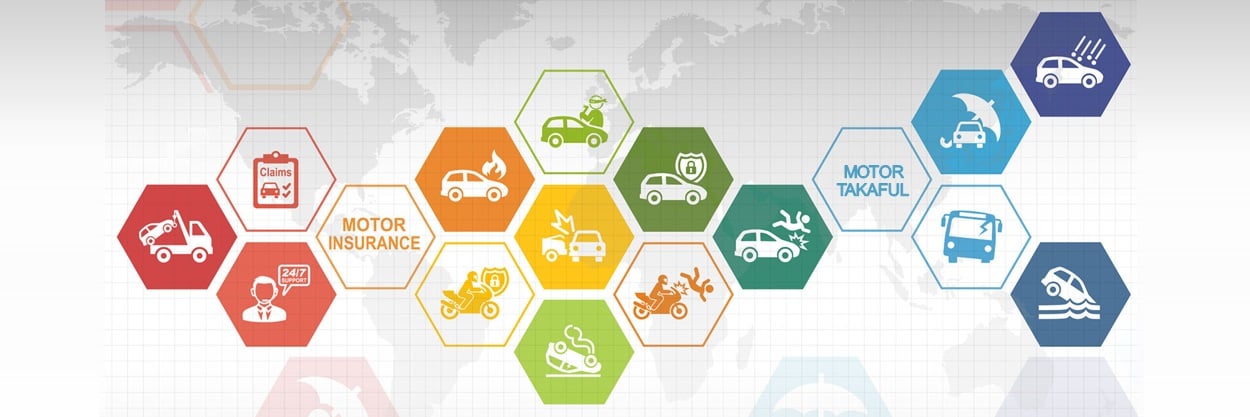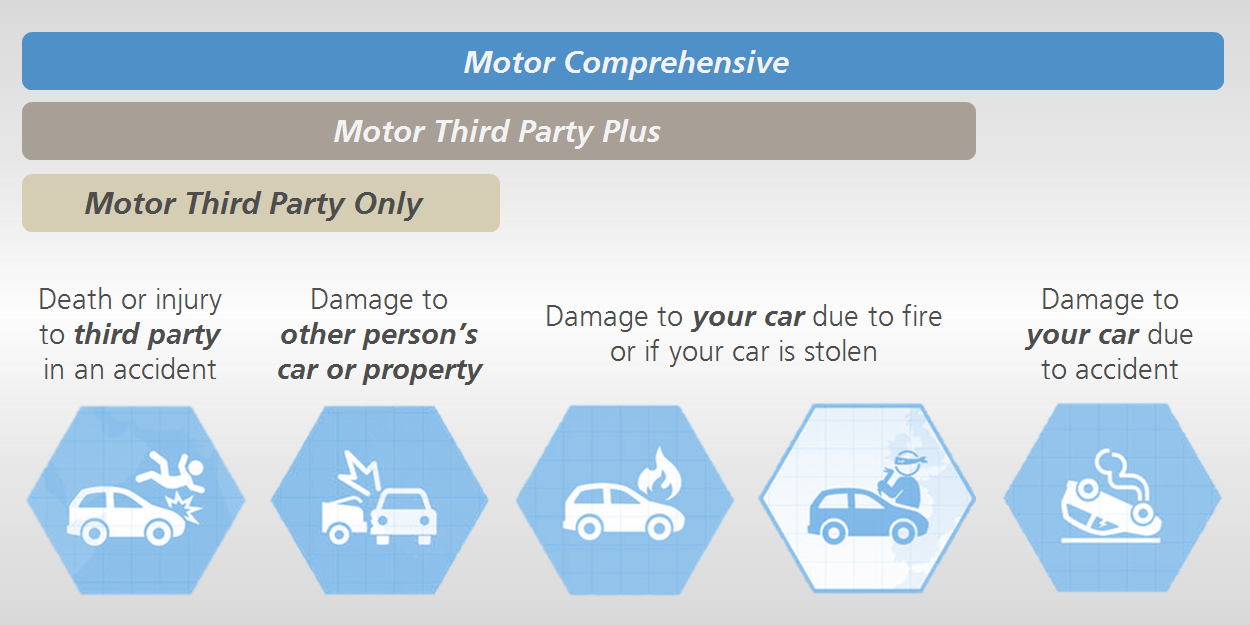
Motor Insurance and Takaful Detariffication
Motor is mandatory protection and accounts for 46.2% of the total general insurance market in 2016. Beginning 1st July 2017, the motor tariff will be liberalised (commonly known as 'detariffication'). This means removing the current motor tariff structure or freeing up the fixed premium/contributions rates so that insurance companies and takaful operators are able to charge premiums/contributions that correspond to the risk behaviour of consumers.
This will pave the way for more innovative products with competitive pricing to enter the market, giving you greater flexibility to choose the best protection according to your needs and preferences. Read on to find out more!
We have designed new plans that can be customised according to your needs.
You can count on us anytime, anywhere!
Zurich Roadside Assistance
You may contact 24-Hour Hotline:1-300-88-5566
or03-7628 1538
Applicable to Zurich Insurance and Zurich Takaful customers
List of Zurich Panel Workshops
We have an extensive nationwide network of panel workshops to meet your needs.
Workshops for Motor Insurance |
Windscreen Specialist for Motor Insurance |
What is a Tariff?
Tariffs are fixed price lists that determine the premium/contribution rates in which insurance companies and takaful operators can charge consumers for insurance/takaful products offered by them. Tariffs are regulated by a government body across the industry.
Examples of these are Motor and Fire insurance policies and takaful certificates. When premiums/contributions are tariffed, insurance companies are not allowed to vary the prices chargeable on the policy/certificate.
What does detariffication or liberalisation of tariff means?
It means removing the tariff structure or freeing up the fixed premium/contribution rates so that insurance companies and takaful operators are able to charge premiums/contributions that commensurate or correspond to the risk behaviour of the consumers. This also implies that insurance companies and takaful operators can charge different rates for the same risk profile based on their business risks models and strategies.
Starting 1stJuly 2017, insurance companies and takaful operators will have the flexibility to apply risk-based pricing and use a wider range of criteria to calculate your premiums/contributions.
What is the purpose of liberalising the tariffs?
It is a continuation of the Framework established to pave the way for the pricing of motor and fire insurance/takaful to be more reflective of risk behaviour of consumers. In a liberalised environment, competition will encourage insurance companies and takaful operators to innovate and offer a wider range of motor and fire products that cater to the various needs and preferences of consumers.
Consumers will not only benefit from a wider range of product offerings, higher service level and improved accessibility of coverage but also from customised coverage that matches individual risk profiles. For example, the current motor tariff structure takes into account the vehicle model, age and engine capacity. With the detariffication of motor insurance/takaful, the premium/contribution rates will take into account other risk and behavioural profiles such as such as insured age, gender and claim history. This means that good driving behaviour will be rewarded.
How will the liberalisation of tariffs be implemented?
It will be implemented in a phased approach to allow time for consumers and industry to adjust to the new operating environment.
In the first phase, effective 1st July 2016, insurance companies and takaful operators were given the flexibility to offer new motor products and add-on covers that were not defined under the existing tariff.
In the second phase, effective 1st July 2017, the premium/contribution rates for Motor Comprehensive as well as Motor Third Party Fire and Theft products will be liberalised, where premium/contribution rates will be determined by individual insurance companies and takaful operators.
However, the premium/contribution rates for Motor Third Party products will continue to be subjected to tariff rates.

How much can I expect to pay/contribute for my motor insurance/takaful?
- Fairer pricing – Premiums/contributions will not be based on the vehicle specs alone but also on the driver‘s risk profiles.
- Higher service level – To differentiate themselves from competitors, insurance companies and takaful operators will look to enhancing their quality of service in order to provide the best they can to you
- More innovative products to choose from – Wider range of products that can be customised to suit your needs and preferences
- More control over how much you pay/contribute – Ultimately, your driving habits will determine your premiums/contributions, giving you the opportunity for more potential savings.
Overall, you as a consumer will have a greater degree of flexibility in selecting a motor insurance/takaful provider that addresses your needs.
How much can I expect to pay/contribute for my motor insurance/takaful?
Currently, your premiums/contributions are calculated based on the following criteria:
- Type of Vehicle – Model of your vehicle, the value of which determines the sum insured/covered
- Age of Vehicle – How old is your vehicle?
- Engine Size – Engine capacity of your vehicle. How fast can it go?
- Extras & Loading – Agreed Value Pricing, Add-on Personal Accident covers etc.
- No Claims Discount (NCD)
From 1st July 2017, your premiums/contributions will be calculated based on additional criteria, some examples of which are listed below:
- Insured Age
- Gender
- Driving Experience
- Claim History
- Type of Vehicle
- Age of Vehicle
- Engine Size
- Occupation
Insurance companies and takaful operators will consider many factors in assessing your risk profile and provide you with the flexibility of customisation to suit your needs.
Does this mean I don’t get my No-Claim Discount?
The No-Claim Discount model will not affected. Consumers will still enjoy this benefit.
What can I do to enjoy lower premiums/contributions?
Consumers should ensure that his/her risks are adequately protected. Price should not be the determining factor when purchasing protection. Customer service standards, claims handling and the track record of insurance companies and takaful operators are some of the important considerations.
That being said, you can expect to pay less if you are in the low risk segments. The age-old advice for staying safe on the road still applies:
- Adopt good driving behaviour. Do not speed and accumulate traffic summons!
- Follow traffic rules. Yellow lights does not mean “go faster”.
- Follow your regular car service maintenance schedule.
Where can I find out more about detarrification?
For further information, you can refer to the FAQ section in the Persatuan Insurance Am Malaysia (PIAM) website at www.piam.org.my.
